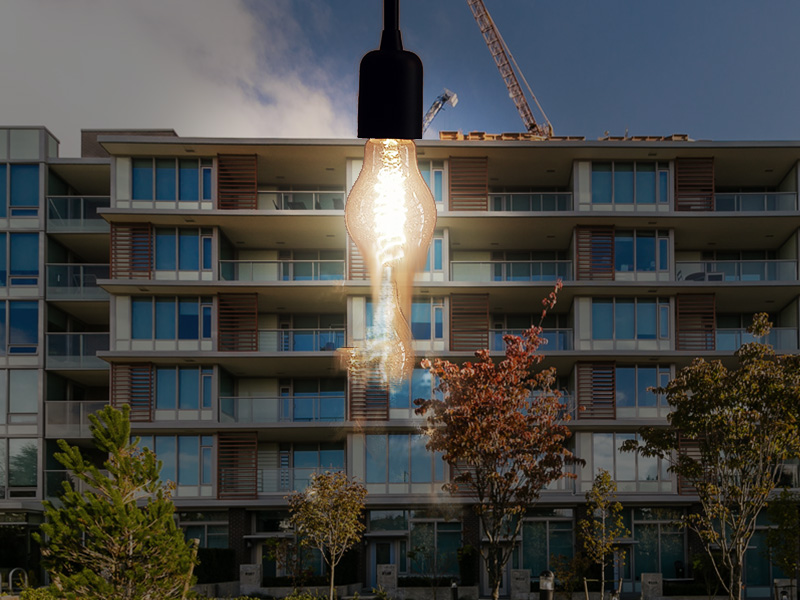Feds’ long-delayed GST waiver on rental housing a welcome relief
Goodman Report

The federal government has finally confirmed its intention to remove GST charges on new rental housing, an excellent but critically delayed measure.
The federal Liberals first promised this relief on the campaign trail in 2015 – eight long years ago, during which time a serious rental housing shortage turned into a national crisis. Canadian Mortgage Housing Corporation (CMHC) recently updated their statistics regarding the number of homes we need between now and 2030 – a staggering 3.5 million over and above current production. One can’t help but ponder where we might be as a country had this promise been fulfilled in 2016.
As with all government announcements, the details are crucial. This is what Prime Minister Justin Trudeau announced at the Sept. 14, 2023, news conference in London, ON:
To continue taking urgent action to drive down the cost of housing across the country, including for renters, the federal government:
- will incentivize the construction of much-needed rental homes by introducing legislation to remove the Goods and Services Tax (GST) on the construction of new apartment buildings for renters. This is another tool to create the necessary conditions to build the types of housing we need, and that families want to live in.
- is calling on provinces that currently apply provincial sales taxes or the provincial portion of the Harmonized Sales Tax (HST) to rental housing to join us by matching our rebate for new rental housing.
- will require local governments to end exclusionary zoning and encourage building apartments near public transit in order to have their Housing Accelerator Fund applications approved
Qualifying rental housing is further defined as “new purpose-built rentals, meaning apartment buildings, student housing, and senior residences built specifically for long-term rental accommodation.”
The GST waiver will apply to projects that start construction between September 14, 2023, and December 31, 2030, and complete by December 31, 2035, providing support for projects in the planning process and for future acquisitions; there’s a long lead time for starting (7 years) and for completing (12 years). But given the long delay in keeping this promise, the announcement is still a significant miss for projects already underway.
Here are some questions we hope are answered soon:
- When will this legislation come? Is there an opportunity for amendments?
- What’s the definition of “starting construction”?
- If a project stops and restarts, perhaps moving from condo to rental, does this meet the criteria for waiver?
- Are there regulations relating to the type of product? Construction type, location, size, unit mix, etc.?
- If a project is stratified (say, as a requirement by the municipality), with an accompanying Housing Agreement setting out the units must be for long term rental use for the life of the building, will these projects meet the criteria for waiver?
Given the hundreds of thousands of units that are needed, there should be no restrictions attached to this waiver. If a project is designated rental housing, the feds should let it run. Additionally, the government should credit recently completed (and GST paid) rental projects. The country needs all those developers to stay in the field, and yet we are aware of several who, having just completed projects amidst the highest cost increases we’ve seen, are now unwilling to look at delivering more, citing too much work and too much risk.
Setting these considerations aside, it’s likely there will be an immediate positive impact for many projects. Some may even flip from condo to rental, especially if other levels of government join the effort to support rental construction – or, at least, stay out of the way. We fear, for example, that municipalities may see this as a potential windfall for CAC negotiations, increasing their demands on new projects to benefit from the GST waiver. The federal government should make it very clear that this is prohibited.
We also hope the feds will fix the backlog at CMHC, as most new rental projects require CMHC financing to get out of the ground. A reported 4,600 applications came in ahead of the CMHC deadline to avoid premium increases and wait times are extremely long.
All in all, the GST waiver is a positive step for new rental housing construction in Canada. We have an extreme shortage of rental housing, and Canadians are feeling those effects coast to coast. It’s excellent to see the government begin to move on this file, even if it’s taken much longer than it should have.
For more information, the Ministry of Finance provided further details here.